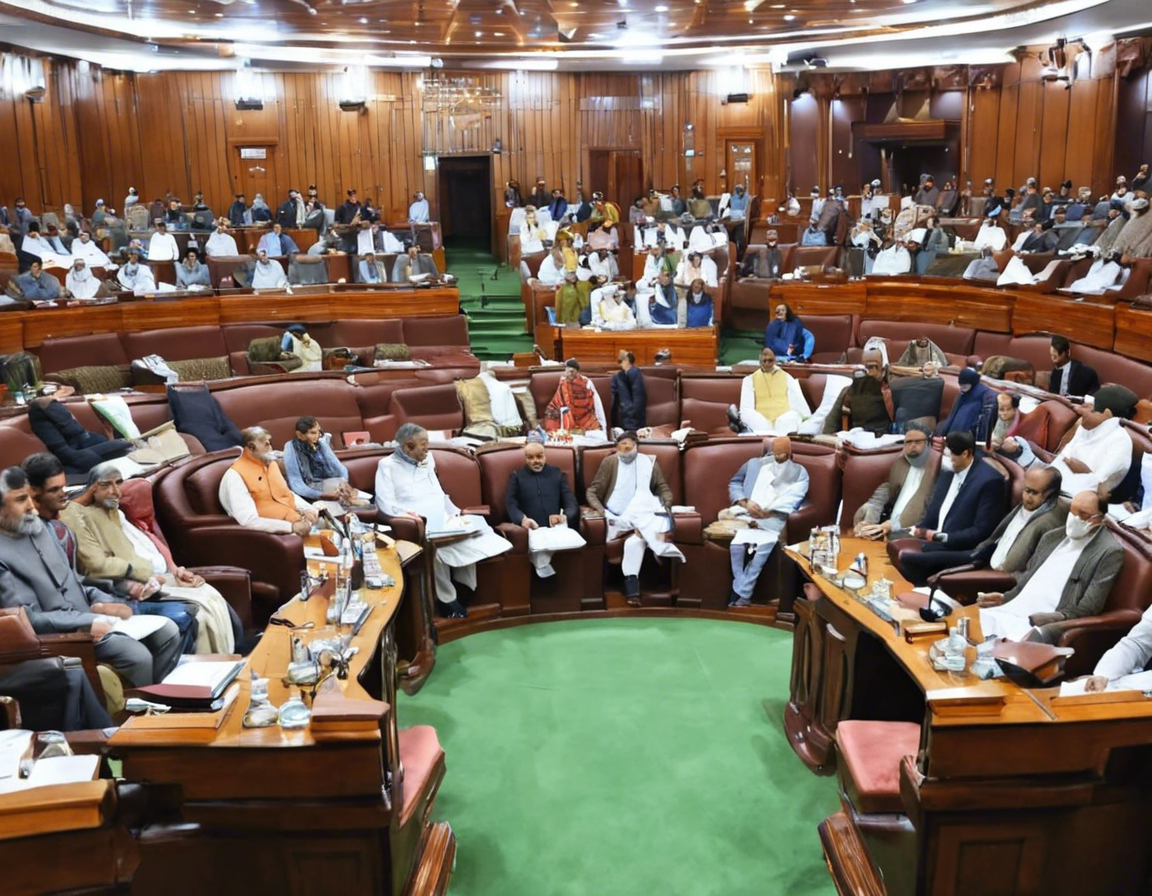Exploring the Jammu Kashmir Reservation Amendment Bill
Introduction
The Jammu Kashmir Reservation Amendment Bill has been a topic of significant discussion and debate in recent times. The bill aims to amend the provisions of the Jammu and Kashmir Reservation Act, 2004 to provide for the reservation in appointments and promotions in certain state government jobs for the Scheduled Castes, Scheduled Tribes, and other socially and educationally backward classes. This amendment is crucial as it seeks to address the disparities and inequities prevalent in the region and ensure better representation and opportunities for marginalized communities. In this blog post, we will delve into the key aspects of the Jammu Kashmir Reservation Amendment Bill, its implications, and the way forward.
Understanding the Jammu Kashmir Reservation Amendment Bill
The Jammu Kashmir Reservation Amendment Bill seeks to amend the Jammu and Kashmir Reservation Act, 2004, which provided for reservation in appointments and promotions for various social groups. The amendment aims to further strengthen the reservation provisions to ensure greater inclusivity and representation in state government jobs. The bill proposes to increase the reservation for Scheduled Castes from 8% to 10%, for Scheduled Tribes from 6% to 8%, and for socially and educationally backward classes from 2% to 4%.
Key Provisions of the Bill
The Jammu Kashmir Reservation Amendment Bill contains several key provisions that are aimed at promoting social justice and inclusivity. Some of the important provisions of the bill include:
-
Increased Reservation Quotas: One of the primary provisions of the bill is the increase in reservation quotas for Scheduled Castes, Scheduled Tribes, and socially and educationally backward classes. This will provide more opportunities for these communities to access government jobs and improve their socio-economic status.
-
Reservation in Promotions: The bill also seeks to provide for reservation in promotions for the above-mentioned social groups. This is a crucial step towards ensuring career progression and upward mobility for marginalized communities.
-
Constitutional Validity: The bill is in line with the constitutional provisions regarding reservation for Scheduled Castes, Scheduled Tribes, and other backward classes. It seeks to uphold the principles of equality and social justice enshrined in the Constitution.
Implications of the Bill
The Jammu Kashmir Reservation Amendment Bill has several implications, both immediate and long-term. Some of the key implications of the bill include:
-
Empowerment of Marginalized Communities: By increasing reservation quotas and providing for reservation in promotions, the bill will empower marginalized communities in Jammu and Kashmir. It will enable them to access better opportunities and improve their socio-economic conditions.
-
Improved Representation: The bill will lead to improved representation of Scheduled Castes, Scheduled Tribes, and other backward classes in state government jobs. This will help in bridging the existing gaps and fostering a more inclusive and diverse workforce.
-
Enhanced Social Cohesion: By ensuring greater inclusivity and representation, the bill will contribute to enhancing social cohesion in Jammu and Kashmir. It will create a more equitable society where all communities have equal opportunities for growth and development.
Challenges and the Way Forward
While the Jammu Kashmir Reservation Amendment Bill is a significant step towards promoting social justice and inclusivity, there are challenges that need to be addressed. Some of the challenges include ensuring effective implementation of the reservation provisions, addressing issues of representation in higher-level positions, and creating awareness about the benefits of reservation among the communities.
To overcome these challenges, there is a need for proactive measures such as capacity building, sensitization programs, and monitoring mechanisms to ensure the successful implementation of the bill. It is also essential to work towards creating a more conducive environment for the growth and development of marginalized communities through targeted policies and programs.
In conclusion, the Jammu Kashmir Reservation Amendment Bill is a crucial legislative intervention aimed at promoting social justice and inclusivity in the region. By increasing reservation quotas and providing for reservation in promotions, the bill will empower marginalized communities and pave the way for a more equitable society. However, effective implementation and monitoring mechanisms are essential to ensure the full realization of the bill’s objectives.
